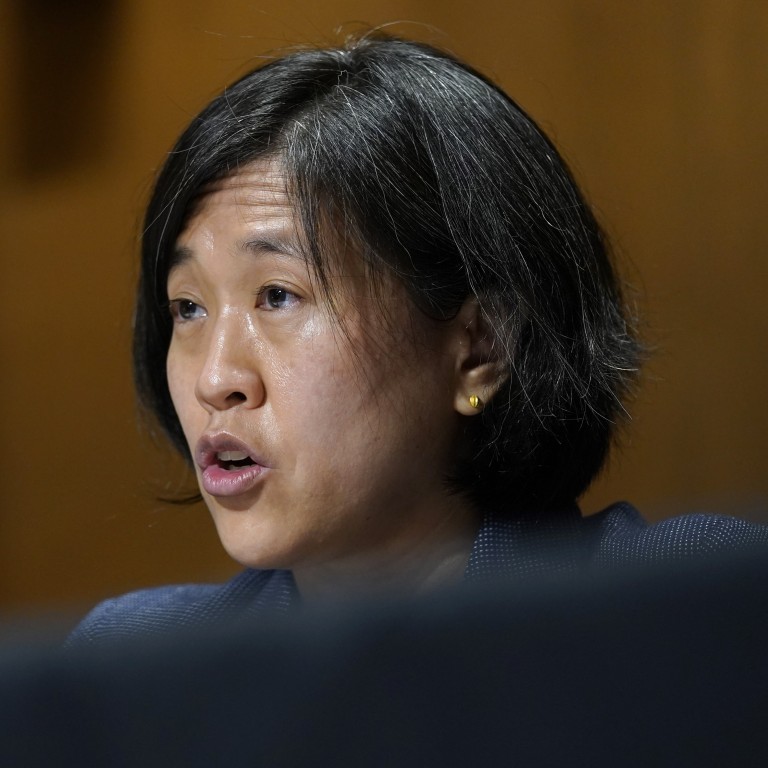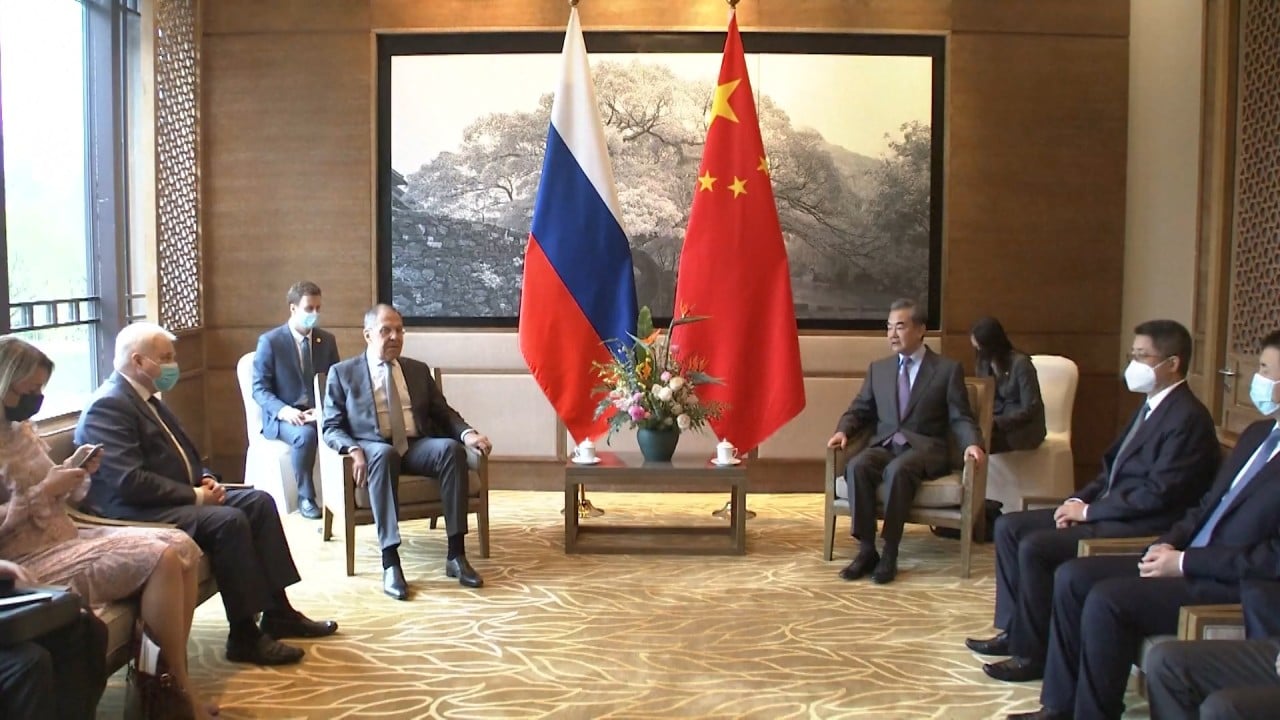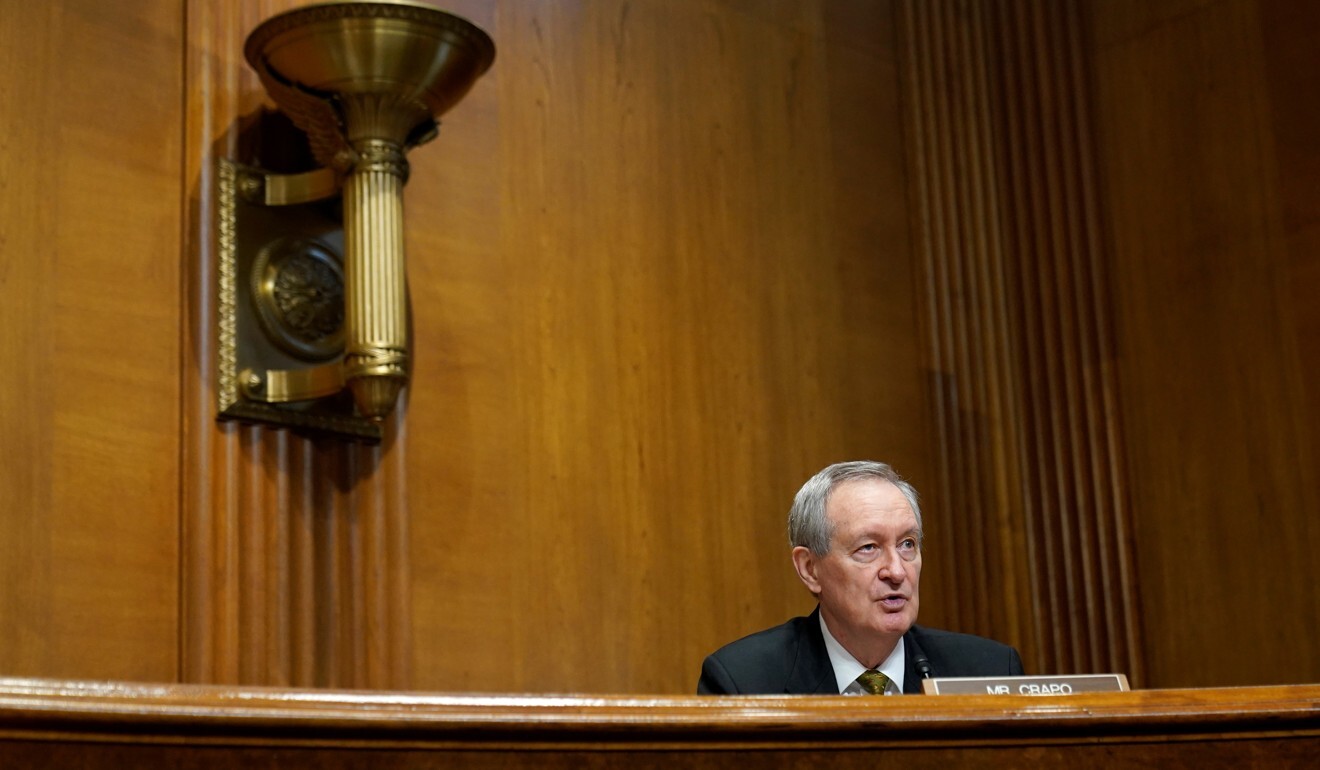
USTR Katherine Tai under pressure on Asia-Pacific trade pact
- Senate Finance Committee hearing reflects bipartisan support for talks regarding the Comprehensive and Progressive Agreement for Trans-Pacific Partnership
- Tai faces backlash for her backing of a proposal to waive coronavirus vaccine patent protections
“A number of us have talked about the TPP, whether in some revised and updated form, but the geopolitics of that seem very obvious as well as the economic benefits,” said Senator John Cornyn, a Republican from Texas.

“The one thing that we have in the United States that China does not have is friends, and I think it will do nothing but enhance our national security and our economic security by banding together with like minded countries in the region.”
As voter sentiment turned sharply against global trade in the run-up to the 2016 presidential election, Trump made withdrawal one of his first official acts.
US ‘made wrong move in response’ to China’s tech challenge
Mike Crapo, the senior Republican on the Senate committee called RCEP “China’s model for what trading relationships in the region should look like”.
“In the absence of US leadership in the region, our allies will have to look elsewhere,” said the senator from Idaho. “If the United States has to pursue a worker-centred trade policy we need to be mindful that American workers lose when China writes the rules.”

01:12
China, Russia foreign ministers meet as countries stand ‘back to back’ amid rise in US tensions
Benjamin Cardin, a Democrat from Maryland raised the same concern.
“It’s important that we expand our trading opportunities with countries in [the Asia-Pacific] region,” he said. “We’re not a member of the Trans-Pacific Partnership, we find China extremely engaged, so what is our strategy to deal with China’s influence?”
When pressed directly on whether she would seek negotiations with CPTPP members on Washington’s possible entry, Tai reiterated her stance that negotiations would require support from the trading bloc for a “worker-centred” trade policy that does not stop enriching manufacturers.
She also alluded to the need for strong bipartisan support for CPTPP negotiations, noting that domestic political opposition to the pact’s first incarnation doomed the effort.
Could a win for Joe Biden see the US re-engaging on global trade?
“There are a lot of good [trading] partners … that are very interested in engaging with US leadership again that will be there,” said Tai, adding that she wants “to ensure that as we are taking steps … to make sure that we are effective, and that we are pursuing a vision that is well supported, here at home, on a very strong and robust bipartisan basis”.
Perceptions of China as an economic threat have gained more momentum since the 2016 election, helping to overcome opposition to an Asian-focused trade pact, said Neysun Mahboubi, a research scholar at University of Pennsylvania’s Centre for the Study of Contemporary China.
“The utility of TPP for purposes of competing with China, economically, is overwhelmingly apparent,” said Mahboubi, who also cautioned that “there remain countervailing domestic politics” to be overcome before bipartisan support is strong enough for Washington to join.
Some labour unions, including the International Association of Machinists and Aerospace Workers (IAM), for example, opposed the United States-Mexico-Canada Agreement, Trump‘s signature trade deal.

Congress passed the USMCA, a revised and more labour-friendly version of the North American Free Trade Agreement (Nafta) last year, although IAM president Robert Martinez Jnr announcing after its passage that accord did not do enough to stop the outsourcing of hundreds of thousands of jobs to Mexico.
There was less agreement among the senators on the patent waiver front in Wednesday’s hearing.
Many of the Republicans warned that such a move would undercut health care technology innovation that will be needed to fight additional infection surges as well as future pandemics.
“Why would we expect American innovators to make massive new investments in medical research, in carbon capture, in clean energy and advanced technologies, if they risk losing intellectual property during the next thing that is truly a global crisis?” said John Barrasso, a Republican senator from Wyoming.
US trade representative expects to meet China’s Liu He ‘in the near term’
Other Republican used the same line of argument.
“I am aware of no evidence whatsoever, that this step is going to enhance vaccine availability in developing countries,” said Patrick Toomey, a Pennsylvania Republican.
“It could quite possibly be the contrary … there are many safety concerns, for instance, [about] facilities around the world that just don’t have the technology to make this properly.
“Frankly, I think it undermines our ability to deal with the next crisis, including the possibility of the next iteration of this crisis,” Toomey said.
Tai pushed back against Republicans, pointing out that the pandemic remained out of control in many parts of the world, and would continue to drag economic growth in the US and globally until government action was taken to make vaccines more widely available.
She also stressed that no final decision would be made before consensus was reached within the framework of the World Trade Organization.

